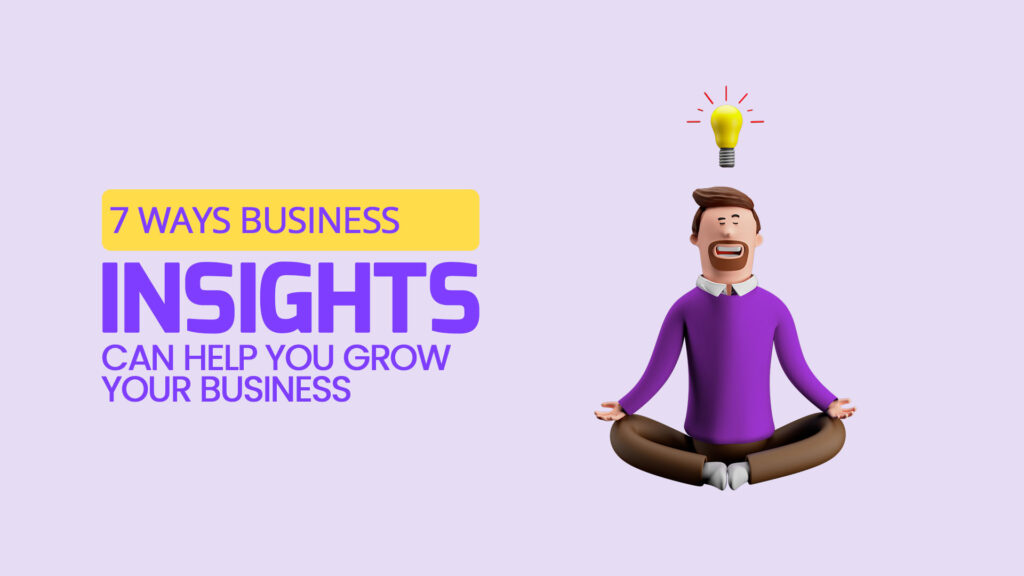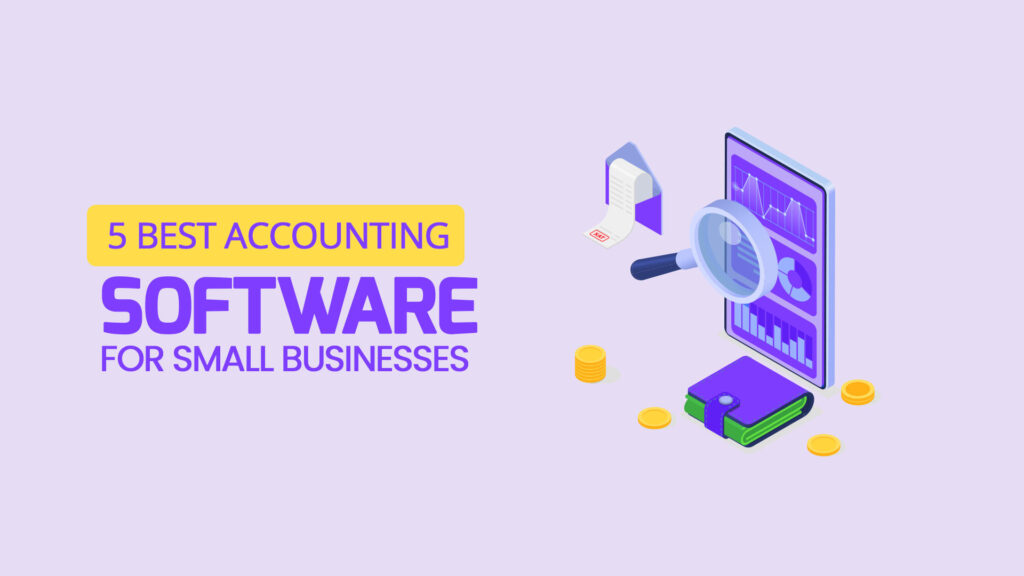7 Ways Business Insights Can Help You Grow Your Business
In the business world, data serves as a roadmap to knowing customers better and the insights derived from that data prove to be crucial for unlocking growth and success. With the right business insights, you can make informed decisions, stay ahead of the competition, and provide an enhanced experience to your customers. In a world where your competition is already more aware of your business and knows what you know, customer insights serve as an advantage to not only keep your business afloat but to also make it grow. In this blog, we’ll explore how you can use business insights to drive your business forward. What are Business Insights? Business insights are pieces of information (drawn from different sources) that are backed by motivation and desired outcomes. The data shows how consumers are engaging with a business, why they are engaging the way they are, and why no one has identified this problem before to offer a better solution. The insights are then analyzed by businesses to make better decisions, and this process is called business intelligence. Let’s look at the example of Uber to better understand business intelligence and explore how brands leverage business intelligence to better serve their customers. Uber uses business intelligence tools to analyze data on past ride requests, driver availability, weather, and other factors to forecast demand for rides in different locations and at different times. By accurately forecasting demand, Uber can ensure that there are enough drivers available to meet the demand and reduce wait times for riders. Now, this brings us to the question: how can brands use customer insights to fuel growth and employ strategies to make better decisions? Let’s have a look at some of those ways. 7 Ways Business Insights Can Drive Business Growth A McKinsey report revealed, businesses that leverage customer analytics are 23 times more likely to top their competitors and 19 times more likely to stay profitable. There’s great potential in harnessing customer insights to incorporate processes in the business that better serve the customers. Here are 7 ways businesses can employ customer insights to drive better results. #1 Improve the Product This is the part where you as a business owner need to identify your target audience and listen to what they’re saying about your product and what improvements are they suggesting. Before taking action on their suggestions, make sure to dig deeper to identify why they’re saying what they’re saying and what issue they want you to resolve. While you’re at it, keep track of all the customer suggestions along with the problem they’re having. Once you’ve gathered enough insight, work on improving the product, introduce it in the market, and let the customers know the changes you’ve made based on their suggestions — this helps in converting customers into raving fans. #2 Provide Tailored Experience to Customers Customers love targeted experiences when interacting with businesses in different sectors. Not only that, they now expect businesses to provide them with a more personalized experience. By using tools like Metric, you can discover emerging trends in your industry and stay ahead of the curve to provide a tailored experience to your customers. #3 Enhance Customer Communication By speaking directly with your customers, you can gauge what messages are being heard by them and what are not getting through. While doing so, you can identify the gaps in your messaging, and then, reiterate your message through different channels to inform your customers about a feature of your product that they aren’t aware of yet. This can, in return, help provide a solution to a problem that they otherwise wouldn’t have known existed. If you do this, you can provide an enhanced communication experience for your customers. #4 Send Targeted Promotional Messages By leveraging customer data, preferences, and buying history, you can send targeted promotional messages to customers that are most likely to make a purchase. Retailers can enhance their operating margins by as much as 60% through proficient promotions and other data and analytics-driven initiatives. #5 Efficiently Price the Product Businesses leave money on the table if they don’t correctly price their products. A wrong pricing mistake often leads to losses in the business. With business analytics, you can base the price of the products that the customers are willing to pay. Read our blog on pricing mistakes to avoid to maintain the financial health of your business. #6 Make Better Marketing Content One of the most important uses of gathering data and analyzing it is to make content that resonates with the target market to make them feel more heard. Observing what language and phrases your customers use when describing your product or service can help you create a marketing copy that directly speaks to your target audience. This will encourage them to identify with your business, and consequently, attract extra search traffic. You can even use customer insights to create testimonials, case studies, and inspiring content like blogs and social media posts. If you make content that resonates with your customers, they will be compelled to share it with their network which will help reach your message to a wider audience. As a business, you need to ask your customers about their experiences and struggles and use their feedback to improve your marketing and content strategies. Make it an integral part of your customer interaction process to provide a better experience. #7 Build Long-term Relationships with Customers Businesses can leverage data analytics to gain insights into customer behavior and preferences, which can be used to personalize their experience and deliver targeted marketing campaigns. By using data to better understand customers, businesses can create a more immersive and relevant marketing experience for their target audience, which will ultimately make them feel valued and lead to increased customer engagement, loyalty, and revenue. Conclusion As a business owner, you need to use customer insights to grow and succeed in today’s competitive market. Plus, there’s data to back this notion. By gathering and analyzing data on customer behavior,
7 Ways Business Insights Can Help You Grow Your Business Read More »



